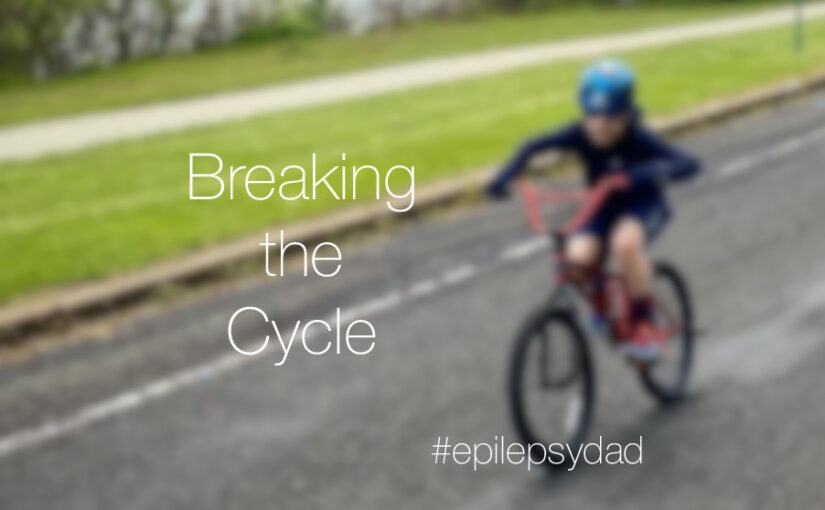When our son was seven years old, after he had mostly stabilized and we had left the hospital, we began teaching him how to ride a bike. Or, rather, we began to reteach him how to ride a bike. The motor skills he developed riding a balance bike when he was three and then a bicycle with training wheels were wiped away and replaced by imbalance and ataxia during the early years of his seizures.
We brought his bike to a city park and found a quiet corner near the grass. I got him on his bicycle and ran behind him, pushing from behind as he found his footing on the pedals towards my wife further down the path. After he found the motion, I would slow down, and he would continue under his own power until he reached his mom, who would help slow him down and repeat the sequence to send him back to me.
I learned to run a bike the same way. My mother and grandfather pushed me on the street in front of my grandparent’s house for hours until I could ride alone. My mother probably learned the same way from my grandfather, who probably learned the same way from his parents. In many ways, parenting is a hand-me-down exercise where we learn how to be a parent from our parents.
But what happens when the approach or behavior that was done to you is not what you want for your child? Whether it’s because new information invalidated an outdated approach or times have changed, the techniques may not apply today. Or, for many people, we’ve learned what was done to us is considered abuse and is not a legacy we want to pass down to our children.
In those situations, our references are tainted. What we know is unusable. The only option we have is to figure it out for ourselves.
Figuring it out is the scary part. I’m constantly afraid that I’m not doing the right thing as a parent and that I will end up doing it worse than my parents did.
But maybe the fear is a sign that we’re on the right path.
It shows that we’re not just blindly repeating the past but actively trying to do better. Learning to parent without a perfect roadmap is daunting, but we are making progress every time we break a harmful cycle or approach our children with more empathy and understanding than we were given.
We may not have all the answers, but we have the ability to grow, adapt, and create a new kind of legacy—one built on love, effort, and the determination to raise our children with more care than we received.
And in the end, that might be what matters.
